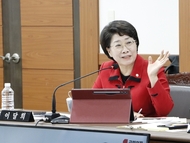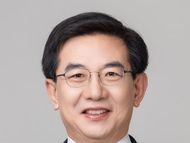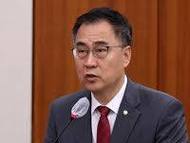March 27, 2012
Coex Center
Seoul, Republic of Korea
12:00 P.M. KST 
PRESIDENT NAZARBAYEV: (As interpreted.) Well, probably as all of you know that Semipalatinsk nuclear test site was one of the largest nuclear test sites in the world, together with Nevada. And about 500 nuclear tests have been carried out on this test site, 70 of them in the open air.
And the polygon was closed by my first decree as the President of Kazakhstan 20 years ago, and since then, together with Russia and the United States, we have been working to rehabilitate the territory around the Semipalatinsk test site. And since 2004, we were able to rehabilitate from radiation about 3,000 square kilometers of the polygon. The total polluted area is about 40,000 square kilometers. And as a result of tests in the past, about 1.5 million people have been radiated.
And this is a very good example of close collaboration when all three countries also work on getting rid of the military infrastructure on the polygon. And you probably know that about 1,100 warheads have been deployed on military missiles on the territory of the polygon in military launching shafts. And we closed that also, together with the help of Russian and American partners. And we are very grateful, the people of Kazakhstan are very grateful for that assistance, and we hope that we'll be able to work together in the future for a safer world on nuclear non-proliferation.
PRESIDENT OBAMA: Well, I'm going to just make a very brief statement here. We wanted to do this brief appearance to highlight one of the most significant examples of what we've been doing through this Nuclear Security Summit, and what our three countries have been able to accomplish through some painstaking cooperation over the last several years.
As President of Kazakhstan indicated, this was a major site for nuclear operations during the Cold War. There was a lot of loose nuclear material that was vulnerable to potential smugglers, to potential infiltration. And as a consequence of extraordinary cooperation between our three countries that actually predates my administration, but was accelerated as a consequence of this Nuclear Security Summit, we've been able to effectively lock down and secure all this vulnerable material.
So we have been able to do this in part because of the outstanding leadership of President Nazarbayev and the people of Kazakhstan. We've also been able to do it because the United States and Russia over the last several years have shown ourselves to have a mutual interest in making sure that nuclear materials are secured and that they do not fall into the wrong hands.
And so this kind of multilateral cooperation is being duplicated as a consequence of this Nuclear Security Summit. And it gives you a specific example of the kind of progress that we're making. We're going to need to make more progress over the next several years. But I am confident that we can actually meet the goal that we set in the first Washington summit, which is in four years to have made extraordinary progress in making sure that loose nuclear material is not vulnerable to smuggling or to potential terrorist plots.
PRESIDENT MEDVEDEV: (As interpreted.) Summits are held not only to conduct meetings, not only to shake hands, not only to declare good goals, but it is also held to demonstrate examples concrete examples of cooperation. I believe that this is precisely one of such concrete examples.
From 2004, the three countries -- United States, Kazakhstan and Russia -- have been cooperating to eliminate the remnants of the past activities within the territory of the Semipalatinsk test site. We were all aware of the threat coming from the test site. And at the moment, now, we can state with confidence that all the threats have been liquidated, and that the Semipalatinsk test site can now develop in a new capacity. The country of Kazakhstan can look into the future. So I believe that this is a good example of practical cooperation that should be highlighted.
I would like to thank my partners, in particular President of Kazakhstan Nazarbayev, for his proactive stance and for creating favorable conditions to accomplish those goals. The Russian Federation and the United States are precisely those countries which have a special responsibility for ensuring nuclear security of the world, and they managed to join efforts in this good example of cooperation.
Although we're aware that the situation we had was the result of the mindset of the past that countries had, we managed to show this good example of cooperation, and such example I believe should multiply, should be reproduced, and should also lead other countries to ensure nuclear security.
PRESIDENT OBAMA: Thank you very much.
Q Mr. President, can I ask you quickly about the open mic? Can you clarify what you meant by having flexibility on missile defense in a second term, what you wanted to have passed on to Mr. Putin? And isn't it presumptuous to be talking about a second term?
PRESIDENT OBAMA: First of all, are the mics on? (Laughter.) Look, what I said yesterday, Ben, is I think something that everybody in this room understands, which is -- I'll just go ahead and then you can translate at the end.
Arms control is extraordinarily complex, very technical, and the only way it gets done is if you can consult and build a strong basis of understanding both between countries as well as within countries. And when you think about the New Start Treaty that Dmitry and I were able to hammer out and ultimately get ratified, that was a painstaking two-year process. I don't think it's any surprise that you can't start that a few months before a presidential and congressional elections in the United States, and at a time when they just completed elections in Russia and they're in the process of a presidential transition where a new president is going to be coming in in a little less than two months.
So it was a very simple point, and one that essentially I repeated when I spoke to you guys yesterday, which is that we're going to spend the next nine, 10 months trying to work through some of the technical aspects of how we get past what is a major point of friction -- one of the primary points of friction between our two countries, which is this whole missile defense issue. And it involves a lot of complicated issues. If we can get our technical teams to clear out the underbrush, then hopefully, in 2013, there's a foundation to actually make some significant progress on this and a lot of other bilateral issues.
So I think everybody understands that -- if they haven't they haven't been listening to my speeches -- I want to reduce our nuclear stockpiles. And one of the barriers to doing that is building trust and cooperation around missile defense issues. And so this is not a matter of hiding the ball, I'm on record. I made a speech about it to a whole bunch of Korean university students yesterday. I want to see us, over time, gradually, systematically, reduce reliance on nuclear weapons.
And as Dmitry said, the United States and Russia, because of our history and because we are nuclear superpowers, have a special obligation. That doesn't make it easy, because both countries are committed to their sovereignty and their defense.
And last point I'll make -- the only way I get this stuff done is if I'm consulting with the Pentagon, if I'm consulting with Congress, if I've got bipartisan support. And frankly, the current environment is not conducive to those kinds of thoughtful consultations. I think the stories you guys have been writing over the last 24 hours is probably pretty good evidence of that. I think we'll do better in 2013.
All right. Thanks, guys.








